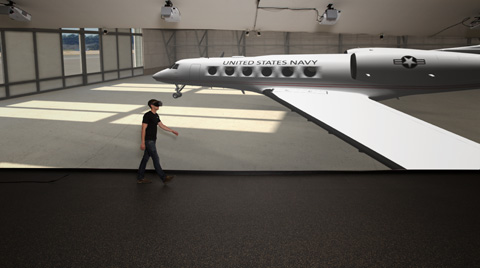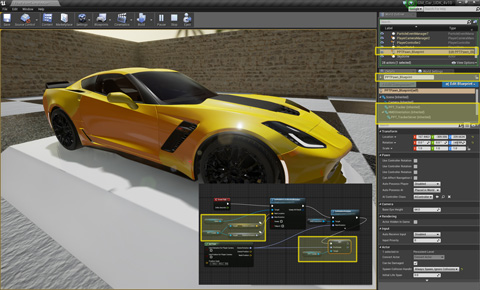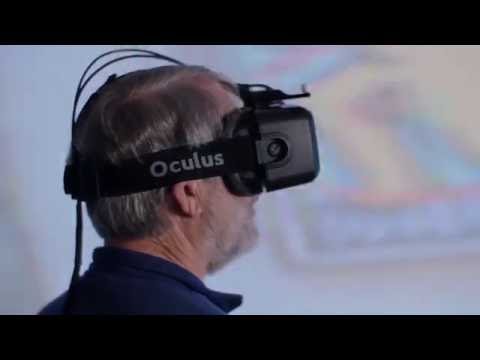
Automotive and aerospace designers could soon be walking alongside massive 1:1 scale virtual models of their designs before they are built thanks to advanced motion tracking technology from WorldViz.
The VR specialist is adapting its Precision Position Tracking (PPT) system to work with a number of new generation VR headsets using the popular Virtual Reality (VR) engines, Unity 5 and Unreal Engine 4.
PPT can track up to ten people or objects simultaneously across spaces measuring more than 50 x 50 metres, enabling what WorldViz describes as ‘true freedom of movement’ in VR – walking, running, crouching, turning, gesturing.
//giphy.com/embed/Zq6rUWuYEn7cQ
The hybrid optical-inertial system includes high-precision cameras that capture position data at 240Hz, lightweight sensors that can be affixed to the headsets, objects such as robots; a sensor “wand” for tracking hands; and a stand-alone software package known as PPT Studio.
WorldViz’s PPT system will work with any VR headset supported by Unity or Unreal. This includes Oculus Rift, HTC Vive, PlayStation VR, Samsung Gear VR and Google’s Daydream VR.
“With the launch of Gear VR, Oculus Rift and HTC Vive, and the imminent launch of PS VR and Google’s Daydream VR, the VR headset market is heating up,” said Andrew Beall, CEO of WorldViz. “The beauty of our PPT system and the new plug-ins is that they take the orientation data from the game engine. So as long as the engine supports the display, you can track the user.”
Peter Schlueer, president and co-founder of WorldViz, added: “These new plug-ins are easy for any developer to set up and use, and will open up a whole new world to content creators who want to use the best wide-area motion tracking and the best game engines with the best VR headsets on the market.”
The PPT system works with projection-based systems and VR-headset-based systems alike. WorldViz says it is ideal for applications that require high degrees of precision and accuracy, movement, collaboration and co-presence, such as research, architectural walk-throughs, large-scale product and construction design reviews (e.g. planes, cars, interior building spaces, etc) and training applications.

Unreal Integration






